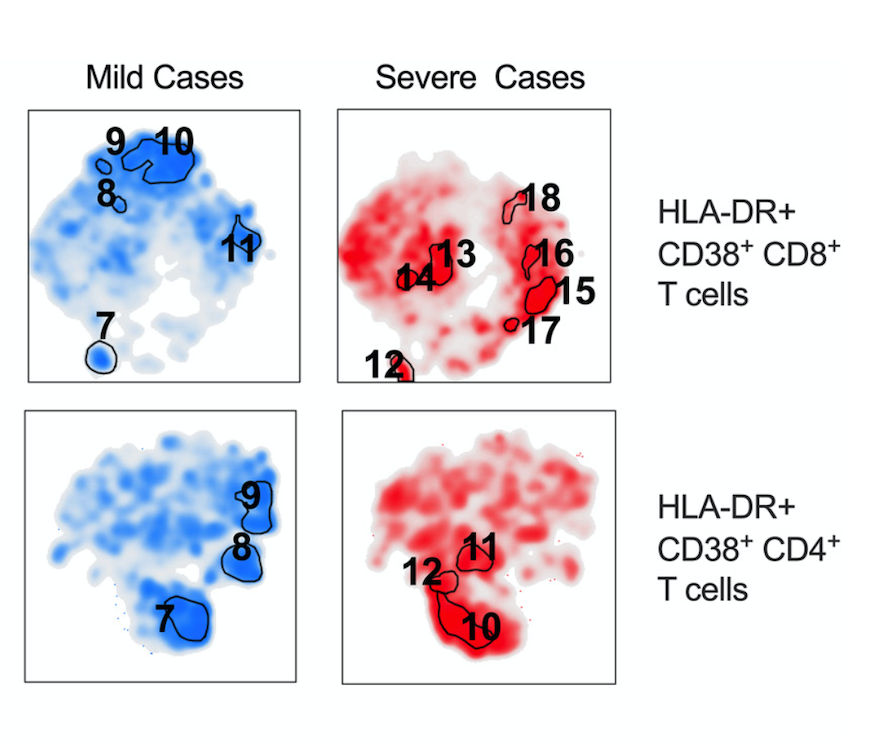Why do some people contract Lassa fever severely, and others only mildly?
The research group led by Prof. César Muñoz-Fontela identified uncontrolled T-cell activation as one possible explanation
Which factors determine whether an infection takes a severe or mild course? This question has been occupying researchers not only since the coronavirus pandemic. In Lassa fever, the course of the disease and the chance of recovery also vary widely. A research group at the Bernhard Nocht Institute for Tropical Medicine (BNITM) found a reason in misguided immune reactions both in a mouse model of the disease as well as in Nigerian Lassa fever patients.
Lassa fever is a viral disease that occurs exclusively in West Africa. So far, there is neither a reliable drug therapy nor a vaccine to combat the disease. Some infected individuals develop haemorrhagic courses with life-threatening internal bleeding, kidney failure and severe neurological symptoms.
Previous studies have already suggested that problems in the immune response may play a role, in particular pathological T cell responses. However, the underlying mechanism remained unclear.
Using a mouse model for Lassa fever, the research group led by Prof. César Muñoz-Fontela discovered that T cells may cause damage to the host during Lassa virus infection as Infected mice survived when T cells were depleted (Oestereich et al., PLoS Pathogens 2016).

![Lassa Fever Reference Centre in Nigeria [Translate to English:] Das Bild zeigt ein verwittertes Hinweisschild auf das Lassa-Forschungsinstitut](/fileadmin/_processed_/d/e/csm_Unknown-1_d86ab53630.png)
As the BNITM has a long-standing collaboration with the Lassa fever reference centre in Nigeria (Irrua Specialist Teaching Hospital, Edo state, Nigeria), the researchers investigated whether this was also the case in Lassa virus infected humans. In 2017-2018, they conducted clinical immunology studies during a Lassa fever epidemic in Irrua and evaluated the T cell responses according to the severity of the disease. They found that in severe and fatal Lassa fever cases, there is reactivation of a broad range of memory T cells that are not specific to Lassa, for example T cells for other viruses such as Epstein-Barr virus (EBV). These non-specific T cells express molecules on their surface, which act as postcodes. They enable these T cells to migrate to infected tissues (e.g. skin or intestine) and cause immunopathology. In contrast, infected individuals, who developed only mild Lassa fever were able to control this T cell activation.
In summary, the authors showed that the inflammation associated with severe Lassa fever leads to uncontrolled T cell activation, which causes significant immunopathology.
Prof. César Muñoz-Fontela: "The next step is now to consider whether these findings could allow us to develop therapies for Lassa fever patients."
Original publication:
Port, Julia R. et al: "Severe Human Lassa Fever Is Characterized by Nonspecific T-Cell Activation and Lymphocyte Homing to Inflamed Tissues." Journal of Virology (Oct. 14, 2020). https://doi.org/10.1128/JVI.01367-20
Oestereich, Lisa et al: "Chimeric Mice with Competent Hematopoietic Immunity Reproduce Key Features of Severe Lassa Fever." PLoS Pathogens 2016. https://doi.org/10.1371/journal.ppat.1005656
Contact person
Prof. Dr César Muñoz-Fontela
Research Group Leader
Phone : +49 40 285380-548
Fax : +49 40 285380-512
Email : munoz-fontela@bnitm.de
Dr Eleonora Schoenherr
Public Relations
Phone : +49 40 285380-269
Email : presse@bnitm.de
Julia Rauner
Public Relations
Phone : +49 40 285380-264
Email : presse@bnitm.de






